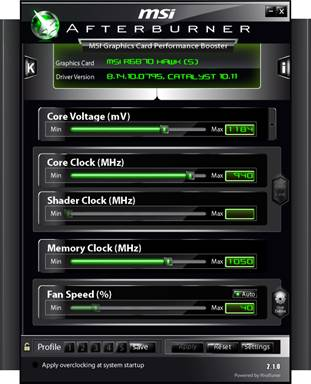

Supported Modes : hardware device MSI/MSIX mode capability.

Limit : driver limit implemented or not (no line of code for Limit in the driver, or line of code present but Limit >= Max Limit). As to audio stutter and popping, don't notice any of it, apart from when the audio device initializes. The graphics card priority is back to "Undefined." Have yet to test either setting properly.

Well that is my interpretation of some poorly written explanation. Limit Max is the maximum number of message interrupts supported by the hardware device, and Limit is a value found in the registry that represents the maximum number of message interrupts supported by the driver. I know they represent message interrupt limits. I'm still a bit fuzzy on what the Limit and Limit Max fields actually mean. Having programmed interrupt handlers for the Amiga platform ages ago helped me understand most of what's in the PDF. Note : You don't need to touch the priority/limit. Devices can direct interrupts to specific cores to leverage common caches and to ensure equal workloads on all CPUs.Įnable MSI mode can also help to fix (when only disabling Fast Startup/Hibernation did not fix it) the crackling, popping, audio stutter problem.

In summary, MSI provides the following key benefits to the embedded developer over previous interrupt architectures: Embedded developers considering Intel® architecture for a solution or currently developing one should fully adopt the MSI model for interrupt delivery and servicing to ensure not only the best IO performance for their solution, but also the most CPU headroom for user-applications and other interrupts. The benefits extend beyond a reduction in interrupt latency to a reduction in CPU utilization by eliminating the time spent by the CPU determining what interrupt needs servicing (by polling devices and masking interrupt controllers). MSI provides a significant reduction in interrupt latency over the previous two generations of Intel interrupt architecture.


 0 kommentar(er)
0 kommentar(er)
